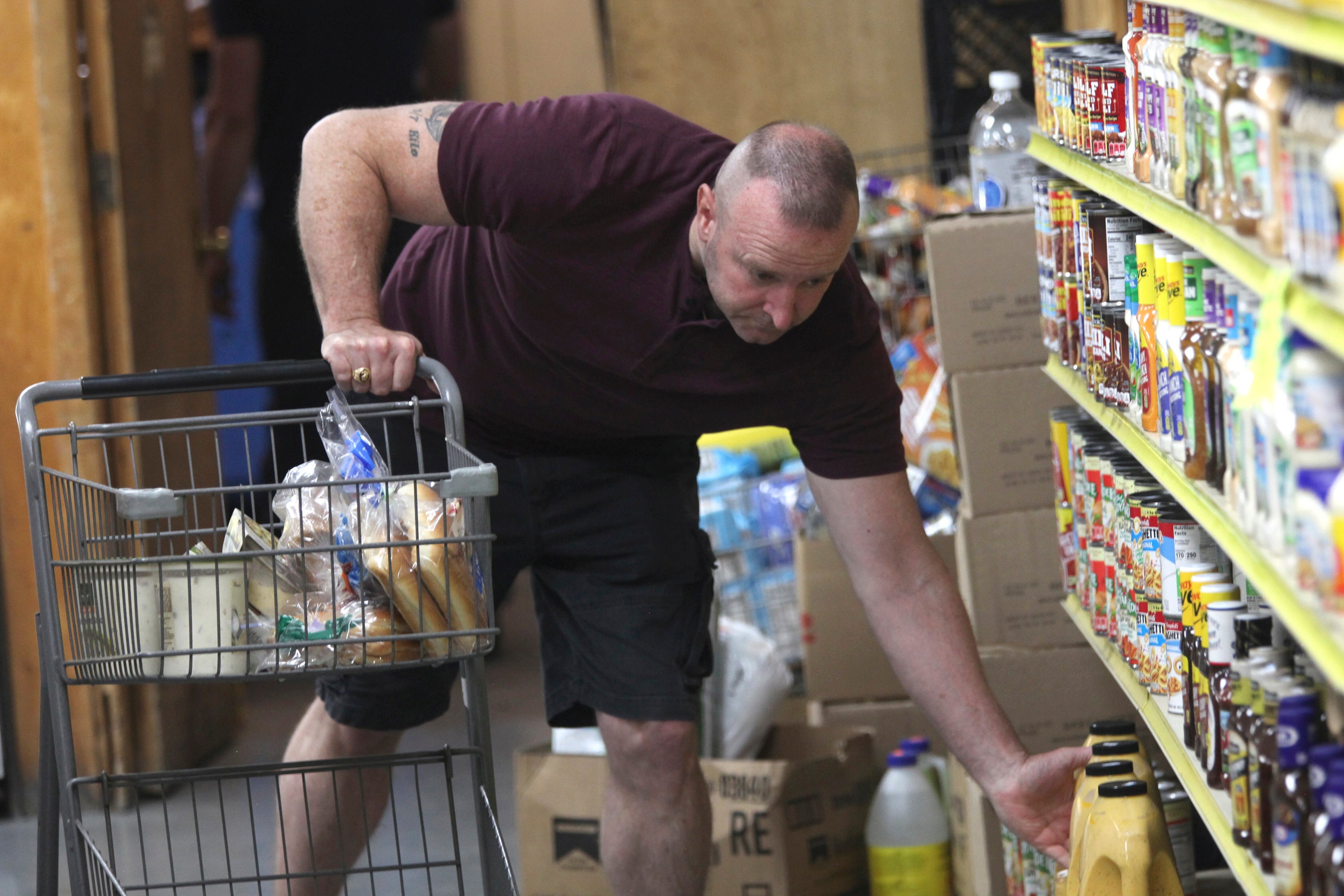Kansas moves to phase out tax on groceries after election
Kansas is moving to phase out the nation’s second-highest state sales tax on groceries, but Republican lawmakers aren’t planning to lower consumers’ bills until after Democratic Gov. Laura Kelly faces reelection in November

Your support helps us to tell the story
From reproductive rights to climate change to Big Tech, The Independent is on the ground when the story is developing. Whether it's investigating the financials of Elon Musk's pro-Trump PAC or producing our latest documentary, 'The A Word', which shines a light on the American women fighting for reproductive rights, we know how important it is to parse out the facts from the messaging.
At such a critical moment in US history, we need reporters on the ground. Your donation allows us to keep sending journalists to speak to both sides of the story.
The Independent is trusted by Americans across the entire political spectrum. And unlike many other quality news outlets, we choose not to lock Americans out of our reporting and analysis with paywalls. We believe quality journalism should be available to everyone, paid for by those who can afford it.
Your support makes all the difference.Kansas is moving to phase out the nation’s second-highest state sales tax on groceries, but Republican lawmakers aren't planning to lower consumers' bills until after Democratic Gov. Laura Kelly faces reelection in November.
Eliminating the 6.5% tax is Kelly's most visible legislative initiative this year, and she and fellow Democrats have been waging a public campaign for weeks to get the GOP-controlled Legislature to eliminate the whole tax on July 1. The Republican plan would phase out the tax over three years, dropping it to 4% in January, to 2% in 2024 and zero in 2025.
The Senate voted 39-0 Wednesday to approve the Republican plan, and the House planned to vote on it Thursday. With lawmakers reluctant to vote against any version of a tax cut on final action, the measure was likely to go to Kelly, who has made a point of not saying what she would do.
The debate is dominated by election-year politics. Kelly portrays herself as a bipartisan problem-solver, and her proposed tax cut would start reducing people's groceries bills ahead of the November election. GOP lawmakers are countering her proposal by throwing rhetoric she used in her 2018 campaign against her.
Kelly and her fellow Democrats argue that consumers want to see as much relief as possible as quickly as possible. That was true Thursday at a Topeka grocery for Ryan Gay, a 51-year-old firefighter who's skeptical that the state will do something other than what “looks good on paper.”
“It's always about the now, right?" he said. “Just get rid of it now, and I save money in the long run."
Kelly argues that she’s trying to help families struggling with the highest inflation in the U.S. since the 1980s. She promised in her first race for governor in 2018 to eliminate the tax but then put the idea on the back burner in favor of shoring up the state’s finances.
Republicans contend that they want a smooth rollout of a potentially complicated tax cut and to make sure that eliminating the tax doesn’t tank the budget.
Only 13 states charge any sales tax on groceries. Kansas' rate is second only to Mississippi's 7%.
The GOP plan would save taxpayers about $740 million over three years, and a family spending $200 a week on groceries would save $208 in 2023. The same family would save $676 in 2023 under Kelly's plan, and taxpayers would save as much as $1.4 billion over three years.
Kansas is flush with cash. It has had surpluses in its tax collections for all but three months in the nearly five years since lawmakers repealed most of an income tax-cutting experiment under GOP Gov. Sam Brownback. That experiment was followed by persistent budget shortfalls and became nationally notorious, even for Republicans.
Republicans argue that the state needs to delay starting the tax relief because the change will be complicated for grocers. The tax cut would apply to unprepared food, not most prepared foods. Senate tax committee Chair Caryn Tyson, an eastern Kansas Republican, said enacting the change July 1 is unrealistic.
"Vendors would not have the ability to implement it in the actual timeframe," Tyson said during her chamber's debate.
The state Department of Revenue and some vendors and vendor groups dispute the idea that the change would require months of work. Some consumers also are skeptical that Kansas needs months of lead time.
“They could pull the plug on it overnight,” said Steve Yaeger, a 75-year-old retiree who acknowledges that he doesn't support Kelly generally and, “I'm not a fan of any Democrat.”
Some Republicans are irritated with Kelly demanding an immediate end to the sales tax on groceries because they included a plan phasing it out in a tax bill in 2019 that she vetoed. That bill included income tax cuts that she and other Democrats strongly opposed.
“So, don’t tell me about this being some political delay,” Masterson said of the GOP plan on the grocery sales tax.
Republicans also argue that lawmakers should be more cautious than Kelly wants because they don't know what the future holds, worrying that inflation will soon smother economic growth.
And they are now pointing to the budget woes following the tax experiment under Brownback as a warning. Kelly's criticism of Brownback's fiscal legacy was a key part her 2018 campaign.
“One of the things she says: It went too far, too fast,” said House Speaker Pro-Tem Blaine Finch, a northeastern Kansas Republican.
___
Andy Tsubasa Field is a corps member for the Associated Press/Report for America Statehouse News Initiative. Report for America is a nonprofit national service program that places journalists in local newsrooms to report on undercovered issues.
____
On Twitter, follow John Hanna at https://twitter.com/apjdhanna and Andy Tsubasa Field at https://twitter.com/AndyTsubasaF